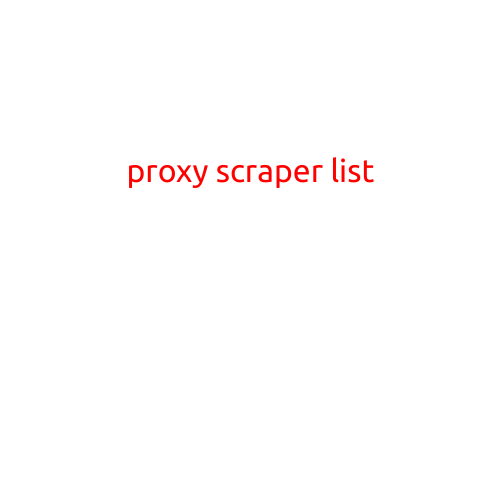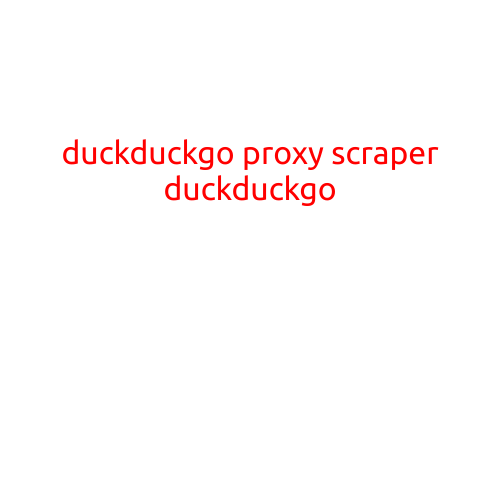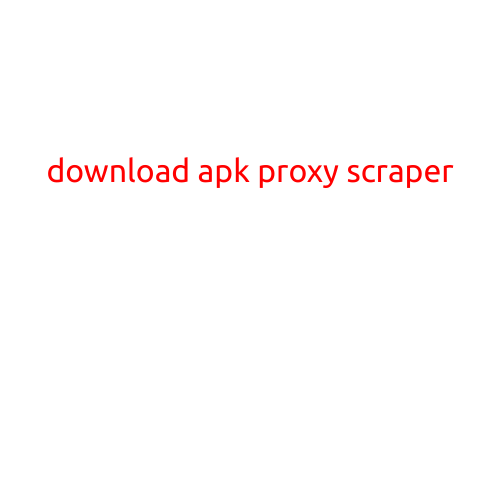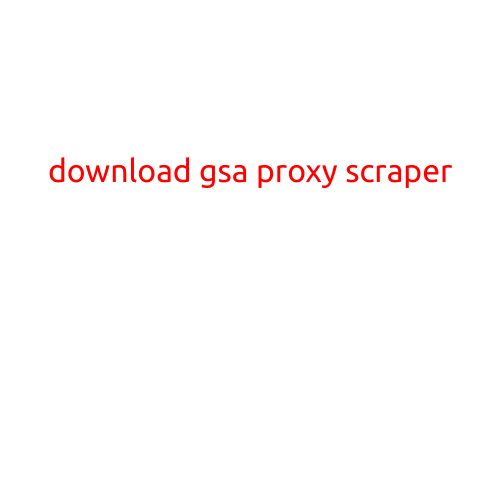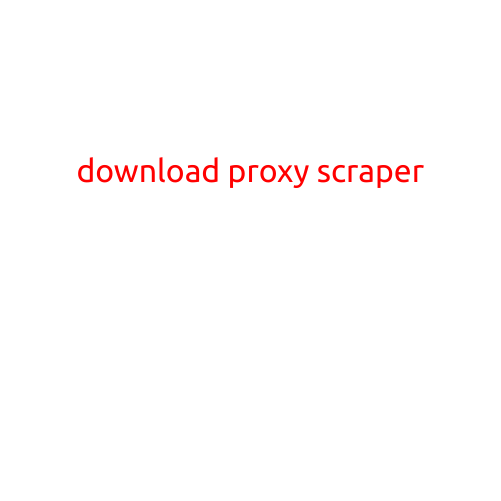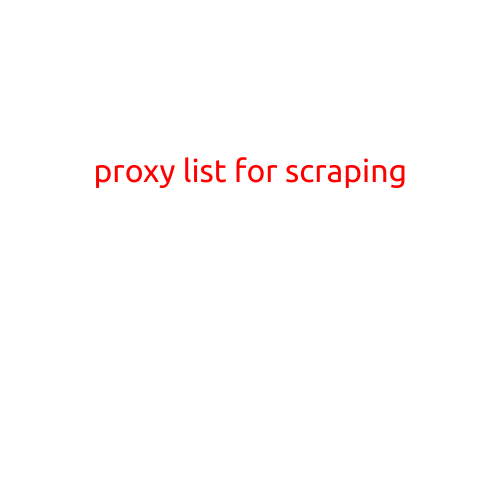
Proxy List for Scraping: A Comprehensive Guide
Scraping data from websites can be a challenging task, especially when you’re dealing with websites that block IP addresses or implement advanced anti-scraping measures. One effective way to overcome these challenges is by using a proxy list for scraping. In this article, we’ll explore what proxy lists are, how they work, and provide a comprehensive guide on how to use them for your scraping needs.
What is a Proxy List?
A proxy list is a collection of proxy servers that can be used to access websites on behalf of your software or application. When you use a proxy list, your requests are routed through these proxies, making it difficult for the website to determine your original IP address.
Proxy lists can be categorized into two main types:
- Public proxy lists: These are free and publicly available lists of proxies that are maintained by individuals or organizations. Public proxy lists can be useful for occasional scraping tasks, but they may not be reliable or fast enough for heavy-duty scraping.
- Private proxy lists: These are commercial proxy lists that are maintained by providers who offer high-quality, fast, and reliable proxies for a fee. Private proxy lists are ideal for heavy-duty scraping operations that require a large number of proxies and advanced features.
How Do Proxies Work for Scraping?
Proxies work by intercepting your requests and routing them through the proxy server. Here’s how it works:
- You set up a proxy server in your scraping software or application.
- Your scraping software sends a request to the proxy server.
- The proxy server receives the request and sends it to the target website.
- The website responds to the request, and the proxy server sends the response back to your scraping software.
- Your scraping software receives the response and extracts the desired data.
Benefits of Using a Proxy List for Scraping
Using a proxy list for scraping offers several benefits, including:
- Improved scalability: With a proxy list, you can scrape multiple websites simultaneously without being blocked due to IP address limitations.
- Enhanced performance: Proxies can significantly improve the speed and performance of your scraping operation by reducing the load on your actual IP address.
- Increased security: Proxies provide an additional layer of security by hiding your IP address and preventing it from being detected by anti-scraping measures.
- Reduced risk of IP blocking: With a proxy list, you can rotate your IP address frequently, reducing the risk of being blocked by websites.
How to Choose the Right Proxy List for Scraping
When selecting a proxy list for scraping, consider the following factors:
- Speed and performance: Look for proxies that offer fast speeds and reliable connections.
- Quality and stability: Choose proxies that are stable and less likely to drop connections or timeout.
- IP rotation: Opt for proxies that offer IP rotation to reduce the risk of IP blocking.
- Support and documentation: Select proxies that offer good support and documentation to help you get started.
- Cost and pricing: Consider the cost and pricing model of the proxy list. Some providers may offer free trials or affordable pricing plans.
Best Practices for Using a Proxy List for Scraping
Here are some best practices to keep in mind when using a proxy list for scraping:
- Rotate IP addresses frequently: Rotate your IP addresses regularly to avoid being blocked by websites.
- Use a mix of proxy types: Use a mix of proxies, such as HTTP, HTTPS, and SOCKS5, to reduce the risk of detection.
- Monitor proxy performance: Monitor the performance of your proxies and rotate them if they become unstable or slow.
- Handle errors and exceptions: Handle errors and exceptions properly to ensure your scraping operation continues uninterrupted.
- Comply with website terms: Always comply with website terms of service and scraping policies to avoid being blocked or legal action.
Conclusion
Using a proxy list for scraping is an effective way to overcome IP address limitations and anti-scraping measures. By choosing the right proxy list and following best practices, you can ensure a successful and scalable scraping operation. Remember to rotate your IP addresses frequently, use a mix of proxy types, and monitor proxy performance to get the most out of your proxy list. Happy scraping!
